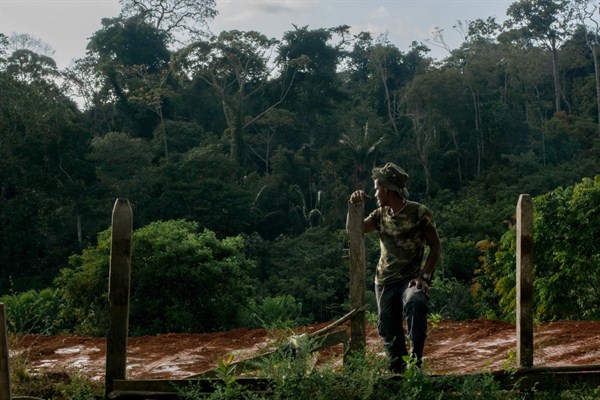Perched on a hill above the tiny village of Carrizal in northern Colombia, the camp that was supposed to be housing 300 guerrilla fighters is nothing more than a wooden shack surrounded by a muddy field. Two weeks after the Dec. 31 deadline for the Revolutionary Armed Forces of Colombia, known by its Spanish acronym, FARC, to demobilize, the only guerillas in sight are the 11 men that make up the camp’s construction crew.
“There is no water. There is no electricity. There are no houses. None of the necessary things that the guerrillas need to arrive at those points has been done,” said Wilson Vega, a Carrizal resident and community leader with the Peasant Farmer Association of the Cimitarra River Valley. “The Colombian state has massively failed to deliver.”
Carrizal is one of 26 sites around the country where a new era for Colombia is supposedly being born—an era where peace and development replace violence and poverty, as the 52-year-long war between the FARC and the state comes to an end. However, just several months into Colombia’s post-conflict reality, optimism over the future is already tainted by cynicism, disillusionment and anxiety, as the implementation of the peace accords stumbles before the process has barely begun.

